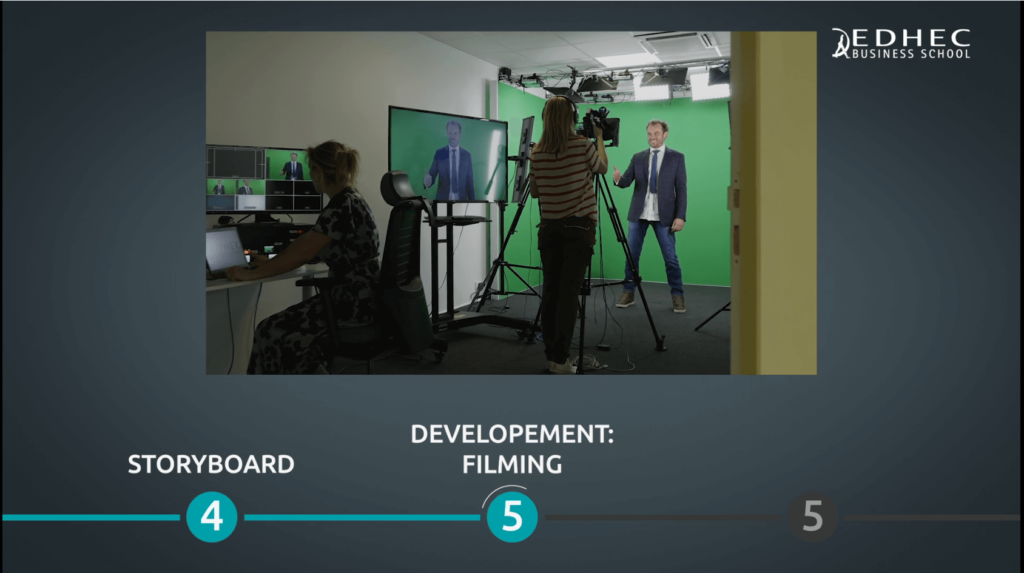As part of our distance learning courses, EDHEC Online offers personalised career support, including — among other features — online mentoring sessions, both individually and in groups. Our objective: to provide professionals with the tools they need to create a meaningful learning experience. But is it really possible to provide coaching remotely? And how do we ensure that this support has maximum impact?

With the advent of 100% virtual training programmes, like those offered by EDHEC Online, coaching has assumed a role of great importance — and is proving to be even more essential for distance learning than for face-to-face classes. Whether one-to-one or in small learning groups, coaching helps to prevent learners from dropping out by allowing genuine learning follow-up and monitoring of participants’ progress, all while providing them with tailored career support.
Coaching is one of the reasons that courses like EDHEC Online’s Manager Programme can boast a 96% completion rate, in contrast with other online formats which do not offer any support; MOOCs, for example, have an average completion rate of between 4 and 10%.
The coach-learner relationship endures the test of distance
Intuitively, we may worry that remote coaching has less of an impact and that our screens act as emotional filters, creating an unbridgeable gap between participant and coach. In reality, the only genuine prerequisite for effective remote coaching is the technical aspect: a reliable web-conferencing tool. So long as the image is sharp and the sound is clear, coach and learner can create a connection.
In EDHEC Online’s Manager Programme, the coaching programme is even more intensive than in our face-to-face courses. We advocate solution-focused coaching: our online mentoring is directly and firmly anchored in the participant’s professional life, including by means of self-set challenges which participants must determine and work towards, in order to progress in the directions which they themselves have selected.
For example, a professional who considers himself to be overly introverted may set himself the goal of speaking up more in a given meeting, followed by analysis of how this change has impacted himself and others. In this respect, the “online” format makes no difference: regardless of the fact that it has been digitalised, our coaching remains practical and pragmatic, with direct relevance to real-life issues.



